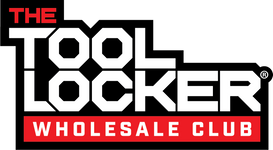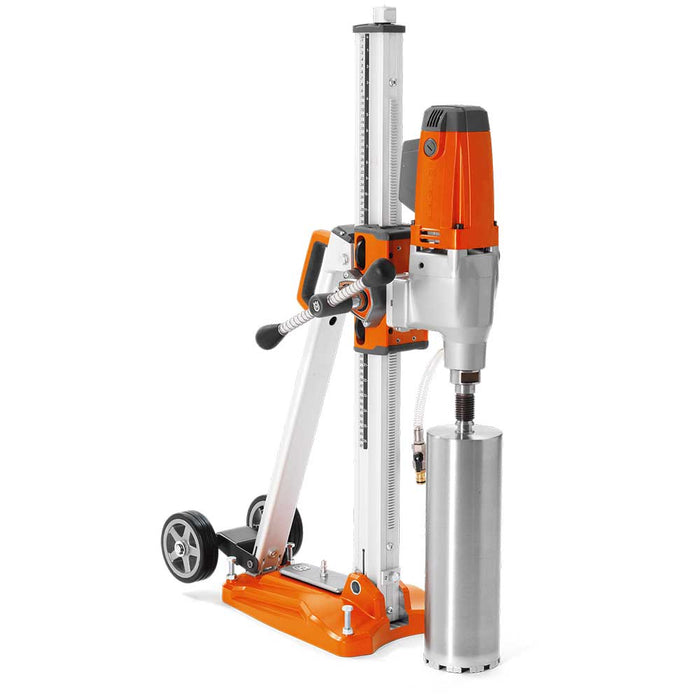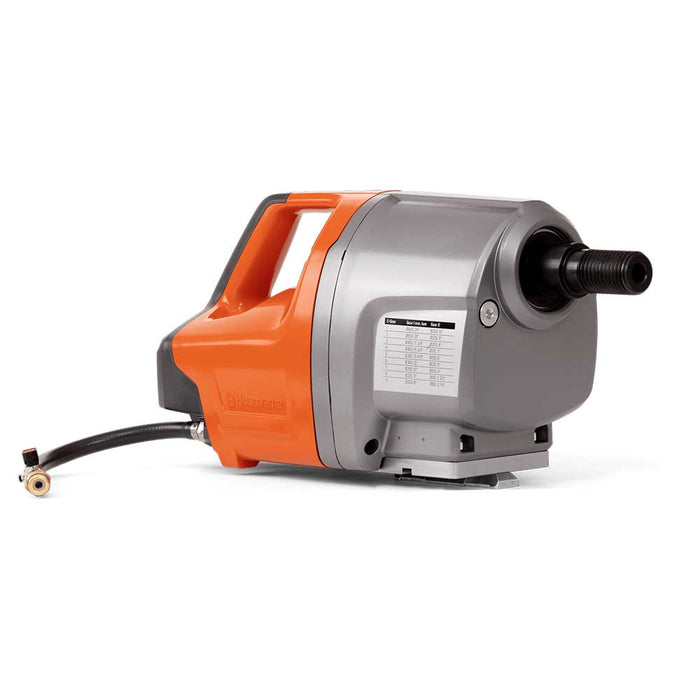
Core Drilling Equipment: Essential Tips and Insights
In the realm of construction, the demand for precision and productivity is paramount. Core drilling, a flexible technique employed for creating meticulously precise holes in a diverse range of materials, relies heavily on the quality and appropriateness of core drilling equipment. Within this all-encompassing guide, we embark on an exploration of the universe of core drilling equipment, delving into aspects ranging from core drills to rigs and stands. Whether you are a seasoned veteran in the field or a newcomer to this arena, this guide serves as your compass to navigate the waters of core drilling, enabling you to make well-informed decisions regarding your core drilling requirements.
Understanding Core Drilling Equipment:
Core drilling equipment encompasses a range of tools and machinery designed for drilling holes into materials like concrete, asphalt, masonry, and more. These tools are integral to various industries, from construction and geology to mining and engineering. Core drilling rigs, often mounted on stands, provide stability and precision during the drilling process. The core drill itself, equipped with a specialized motor, is the heart of the operation. These components work together seamlessly to deliver clean and accurate boreholes, meeting the stringent demands of professional applications.
Core Drill vs. Rotary Hammer:
You may wonder about the differences between a core drill and a rotary hammer. While both tools can drill into hard materials, core drills are the superior choice for creating larger holes that maintain high precision and are ideal for tasks like plumbing and electrical installations. On the other hand, rotary hammers are typically used for smaller drilling tasks and may not provide the same level of accuracy that core drills offer. Understanding the nuances of these tools will help you make the right choice for your specific project needs.
What types of core drills are available?
Core drills fall into two primary categories, the handheld core drills and the fixed core drills.
Handheld core drills and fixed core drills are both tools used in construction and drilling applications, but they differ in terms of their design, mobility, and intended use. Here are some key differences between the two:
Mobility:
Handheld Core Drill: As the name suggests, handheld core drills are portable and can be carried by hand. They are typically smaller and lighter, offering greater mobility and flexibility on the job site.
Fixed Core Drill: Fixed core drills, on the other hand, are mounted or fixed in position. They are generally larger and more stationary, often mounted on a stand or other support structure. This limits their mobility compared to handheld drills.
Application:
Handheld Core Drill: Handheld drills are suitable for applications where mobility and flexibility are crucial. They are commonly used for smaller projects, overhead drilling, or in situations where it may be impractical to use a larger, fixed drill.
Fixed Core Drill: Fixed core drills are designed for more heavy-duty and precise drilling tasks. They are often used in industrial settings and for larger construction projects where accuracy and stability are essential.
Size and Power:
Handheld Core Drill: Handheld drills are generally smaller and less powerful compared to fixed drills. They are suitable for drilling small holes and may have limitations in terms of depth and diameter.
Fixed Core Drill: Fixed core drills are typically larger and more powerful. They can handle larger drill bits and are capable of drilling deeper and more precise holes.
Stability and Precision:
Handheld Core Drill: While handheld drills offer mobility, they may not provide the same level of stability and precision as fixed drills. The operator's ability to control the drill may impact the accuracy of the hole.
Fixed Core Drill: Fixed drills are designed for stability and precision. They are mounted securely, reducing the chances of errors and providing more accurate results.
Operator Fatigue:
Handheld Core Drill: Because handheld drills are operated by hand, prolonged use may lead to operator fatigue, especially in the case of overhead drilling or in awkward positions.
Why choose between dry core drill bits and water core drill bits?
The choice between dry and water core drill bits depends on your specific work environment and requirements. Water is highly advantageous when it's feasible and practical to use. It's strongly recommended for outdoor projects and drilling with large diameters.
Water offers several benefits. It reduces friction, which helps minimize noise, vibration, and heat during drilling. Additionally, it plays a crucial role in dust control, ensuring a cleaner work area.
Conversely, dry core drilling is the go-to option for indoor tasks where using water isn't feasible due to practical considerations. In such cases, it's advisable to have a vacuum cleaner on hand to manage dust. However, for outdoor work and larger diameter holes, opting for a water core drill is the smart choice to enhance your drilling efficiency.
Fixed Core Drill: Fixed drills, being mounted, can reduce operator fatigue as they do not require the constant support and control that handheld drills demand.
In summary, the choice between a handheld core drill and a fixed core drill depends on the specific requirements of the job, including the size of the project, the need for mobility, the desired precision, and the type of material being drilled. Each type has its advantages and limitations, and selecting the right tool depends on the specific application and project requirements.
What factors should you consider when choosing a core drill?
There are three key criteria to keep in mind: the frequency of use, the location where you'll be working, and the desired core size and depth.
Frequency of Use:
If you'll be using the core drill frequently or for larger diameters exceeding 182 mm, a fixed core drill such as the DMS 240 from Husqvarna is your best bet. It delivers the necessary power for intensive work, although it might be less portable. For occasional use and more flexibility in location, opt for a portable model.
Husqvarna DMS 240 Core Drill Rig
Location of Use:
Consider the work environment. For indoor tasks where water usage is impractical, a dry core drill is the way to go, eliminating the need for post-drilling cleanup. However, be prepared to manage dust and consider using a vacuum. In situations where water isn't a concern, a water core drill can help extend the machine's longevity and reduce wear.
Size and Depth:
Core size and drilling depth matter. For coring holes less than 500 mm, a 220 V core drill with 2000 W such as the DMS 240 from Husqvarna should suffice. But if you're planning deep core drilling, it's wise to switch to a 380 V core drill with at least 4000 W for the added power and performance you'll need. A powerful option in this range is the DM 700 PRIME from Husqvarna
Husqvarna DM 700 PRIME™ Core Drill Motor
Frequently Asked Questions about Core Drilling Equipment
As with any specialized field, questions often arise when considering core drilling equipment. Let's address a few common queries:
Q: Are core drills limited to drilling only concrete and masonry materials?
A: Core drills are incredibly versatile tools, and while they excel in concrete, stone, and masonry, they can also be used for drilling through other materials. Some core drills come with specific bits designed for materials like metal, wood, and even plastic. When selecting a core drill, consider your project's demands and the range of materials you might be working with to ensure you have the right bits for the job.
Q: What safety precautions should be taken when using core drilling equipment?
A: Safety is paramount when operating core drilling equipment. Always wear the necessary personal protective equipment, including safety glasses, hearing protection, and dust masks when applicable. Ensure that the core drill is securely anchored or clamped to prevent any movement during operation. Additionally, keep the work area well-ventilated and clear of debris to maintain a safe working environment.
Q: Can I use a core drill for DIY projects, or is it strictly for professionals?
A: Core drills are primarily designed for professional applications in construction and industrial settings. They are powerful and specialized tools intended for precise, heavy-duty work. However, smaller, handheld core drills with appropriate safety precautions can be used for DIY projects if you have experience and knowledge in using them.
Q: How do I maintain and prolong the lifespan of my core drilling equipment?
A: Proper maintenance is essential for extending the life of your core drilling equipment. After each use, clean the equipment, including the drill bits, to remove any debris or material buildup. Regularly inspect the equipment for signs of wear, damage, or loose components, and address any issues promptly. Ensure that your core drilling equipment is stored in a dry and secure location, protecting it from moisture and potential damage. Regularly lubricate moving parts, and follow the manufacturer's maint
Where to Buy Tools Online:
As a dedicated construction professional, having access to reliable core drilling equipment is vital to the success of your projects. The Tool Locker offers a comprehensive selection of core drills, motors, stands, and rigs, making it a convenient one-stop shop for all your core drilling needs. With our secure online purchasing platform, you can easily browse, select, and buy tools online with just a few clicks. Trust The Tool Locker for high-quality construction equipment, and take advantage of the convenience of purchasing tools online to streamline your procurement process.







Leave a comment